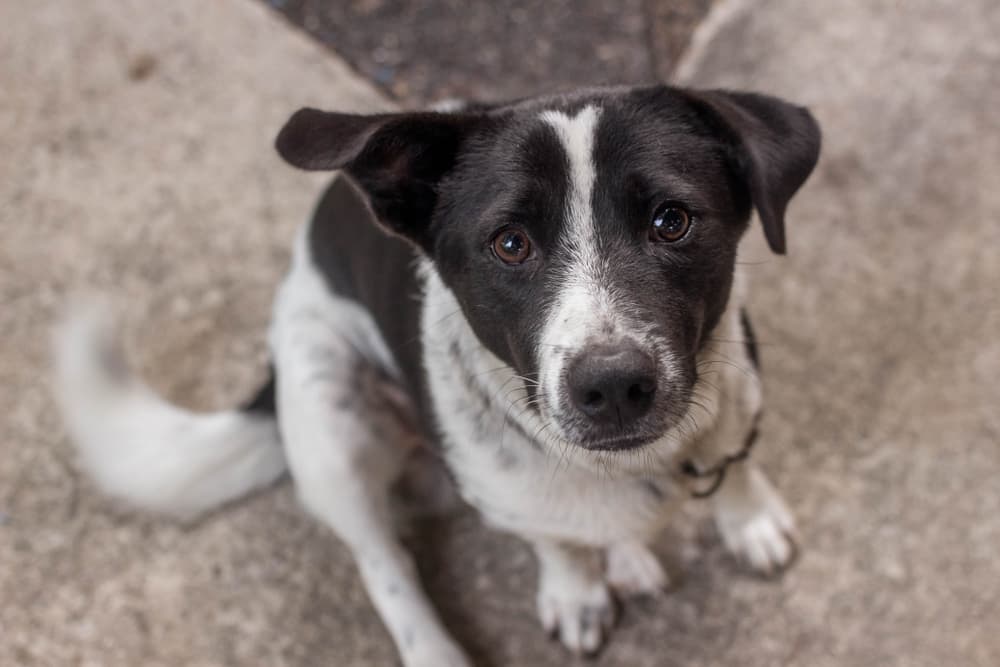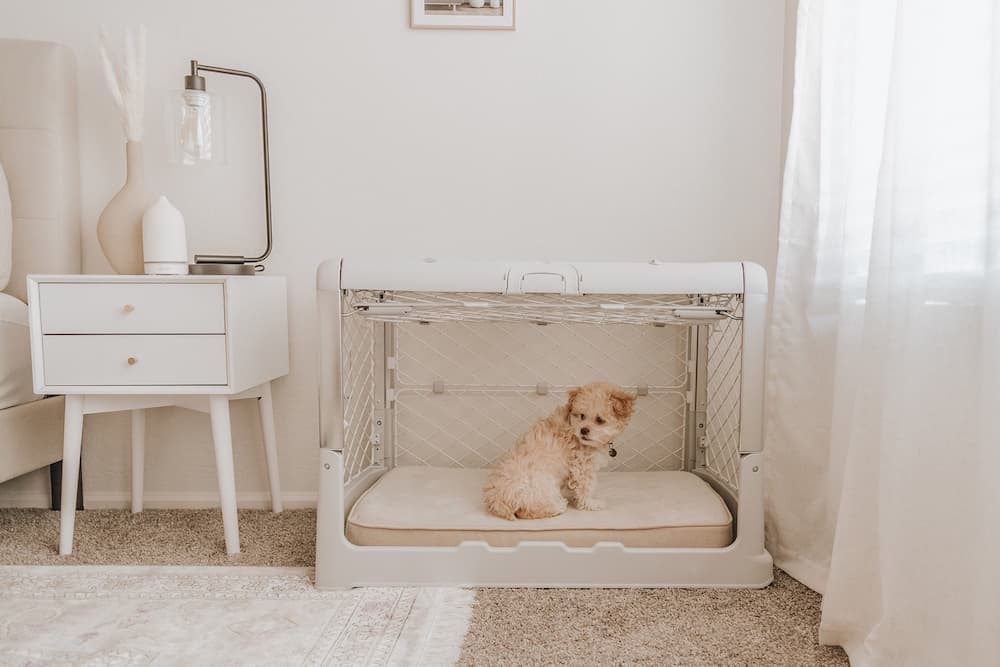Why Are Dogs Scared of Fireworks?

Celebrating the Fourth of July or ringing in New Year’s Eve can be a blast if you’re human—but for dogs, these holidays can be traumatic. That’s because of what often accompanies the festivities: fireworks.
Noise phobias aren’t unusual in dogs. In fact, a 2016 study found that noise sensitivity was the most common cause of anxiety in dogs, with roughly 39 percent experiencing it [1]. Not all dogs are afraid of fireworks, but those who are can be left trembling, hiding, howling or trying to escape when they hear those bangs and pops in the sky. Fortunately there are steps you can take to help your dog through his firework anxiety.
Why Are Dogs Scared of Fireworks?

According to Nancy Tucker, an IAABC-certified animal behavior consultant, a dog’s fear of fireworks is usually due to something in his genetics combined with any past traumatic experiences he may have had with loud noises. Dogs who weren’t fully exposed to a full range of sounds and experiences as young puppies may also be more likely to develop noise phobias.
“To a dog’s more sensitive ears, the sounds of fireworks involve varying levels of frequencies ranging from very high-pitched whistles and hisses to deep booms,” Tucker adds. “We humans can see where the sound is coming from and are able to determine that we’re safe. But a dog can’t tell what the source is or where it’s located, and that feels really scary and dangerous.”
The unpredictable spacing of those pops and bangs also makes it harder for dogs to get a handle on what’s happening around them, amping up their fear—and, according to Tucker, making it harder to train them to endure fireworks or manage their fear once it’s already developed.
Do Fireworks Hurt a Dog’s Ears?

A dog’s hearing is much more sensitive than ours. For some sounds, it’s actually hundreds of times sharper [1]. This could partly explain why a dog may react so strongly to loud noises that wouldn’t bother humans. (Dogs also lack the context we have, especially when it comes to fireworks.)
A 2018 study found that dogs who were freaked out by loud noises may actually be in pain [1]. Among dogs who became sensitive to loud noises over time, the researchers found associated musculoskeletal pain—meaning that when the dog heard a loud noise and jumped or tensed up, his pain may have flared, creating an association between sound and pain.
Tucker says it’s also possible that a dog could experience “unpleasant physical sensations in their ears” if they’re close to a fireworks display. “I wouldn’t recommend taking a dog to an event where fireworks will be launched, partly for this reason,” she says.
Signs a Dog is Scared of Fireworks

It will probably be obvious if your dog is afraid of fireworks, though some signs are subtler than others. Tucker says to watch for these behaviors, all of which mean that your dog is likely scared of fireworks:
- Hiding
- Trembling or shaking
- Panting
- Drooling
- Pacing
- Tail tucking
- Crouching down low
- Pinning ears back
- Exhibiting saucer-like eyes with dilated pupils
- Barking or whining
- Curling up in a ball
How to Calm a Dog During Fireworks

As long as your dog isn’t so sensitive to noise that extra sound will make her more upset, Tucker recommends covering up fireworks with familiar, neutral, and less erratic sounds. She suggests running a fan or turning on the dryer with something gently thumping inside, like tennis or dryer balls. You can also try turning on the TV to a show with heavy dialogue or a laugh track—“anything that doesn’t have long silent moments like a suspenseful movie,” Tucker says. Or play some music that has “lots of high and low frequencies,” she adds, “like rock or pop.”
Tucker also suggests letting your dog decide where he wants to ride out the fireworks. “If he wants to hide behind the couch or under the blankets on your bed, let him,” she says. “If he finds safety in the back of your closet, set up some blankets in there for him and keep the closet door open.” Or if he wants to curl up on your lap or drape his body against yours, “by all means, provide him with the security he seeks,” she says. “Don’t worry, you’re not making things worse by comforting your fearful dog. That’s just a myth.”
If you know your dog is fearful of fireworks, ask your veterinarian whether you should consider using one of the many dog-calming solutions on the market. These range from over-the-counter options like calming collars that use pheromones to quell stress-related behaviors, to tasty chews made with naturally calming ingredients, including l-theanine, thiamine, chamomile, and melatonin.



In some cases, your vet may prescribe a medication, like trazodone or fluoxetine, to treat your dog’s anxiety more effectively. Or, if your dog doesn’t like to take pills, there are nutritional supplements, like Calming Care from Purina Pro Plan Veterinary Diets, that you can sprinkle directly onto your dog’s food to help them relax.



However, according to Tucker, it’s best to talk to your vet about these prescription solutions long before the big boomers start. “It may take some time to test various medications to see what works best for your dog, so don’t delay,” she says.
Dogs and Fireworks: Other Tips and Advice
If these solutions don’t work, et-approved over-the-counter solutions don’t work, Tucker recommends talking with your veterinarian about possible anti-anxiety medications to have on hand when fireworks are imminent. “It may take some time to test various medications to see what works best for your dog, so don’t delay,” she says.
It is possible to desensitize dogs to loud noises, Tucker says. But that training has to happen while they’re still puppies. To do it, you’ll need to create a positive association with loud noises by pairing them with food or play.
She also reminds pet parents to be especially careful about letting their dogs outside on nights when there will be fireworks. Many pups will panic and try to run away.
“Make sure you let your dogs out to relieve themselves earlier in the evening, and again after you’re sure all the fireworks have ended,” she says. “To be safe, use a well-fitted harness and leash and accompany them outside—dogs can easily slip out of a flat collar if they’re panicked. And make sure they’re wearing a tag that identifies them.”



